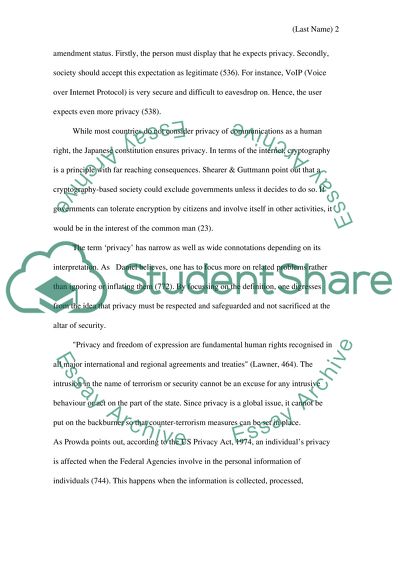Cite this document
(“Short topic: Safety or right to privacy Term Paper”, n.d.)
Retrieved from https://studentshare.org/history/1629205-short-topic-safety-or-right-to-privacy
Retrieved from https://studentshare.org/history/1629205-short-topic-safety-or-right-to-privacy
(Short Topic: Safety or Right to Privacy Term Paper)
https://studentshare.org/history/1629205-short-topic-safety-or-right-to-privacy.
https://studentshare.org/history/1629205-short-topic-safety-or-right-to-privacy.
“Short Topic: Safety or Right to Privacy Term Paper”, n.d. https://studentshare.org/history/1629205-short-topic-safety-or-right-to-privacy.


